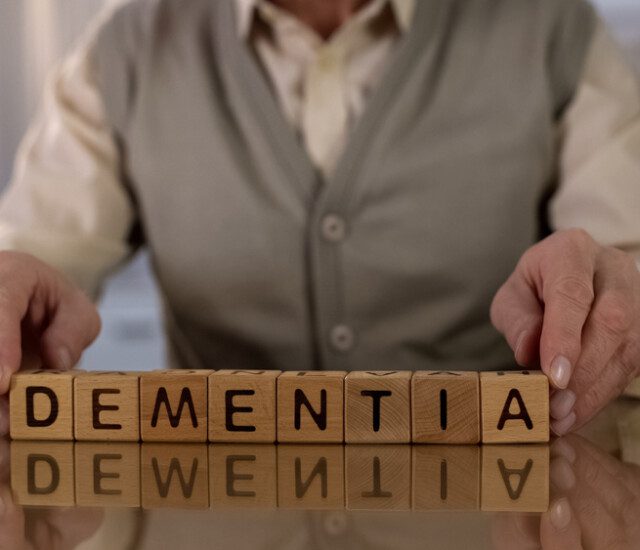Heart health for seniors is vitally important. Heart disease is the No. 1 cause of death in the senior population. While various conditions can be attributed to heart disease, high blood pressure is the most common heart condition for people over 75. Fortunately, there are many ways to keep your heart healthy as you age. Read on to explore the question, “What can you do to keep your heart healthy?” in your retirement years — and keep the independent lifestyle you love.
The Necessity of a Healthy Heart
As we age, our arteries naturally become stiffer. This stiffening — medically referred to as arteriosclerosis — is exacerbated by plaque buildup in the walls of our arteries, which reduces the amount of oxygenated blood reaching our organs, heart muscle and brain. The result can be heart disease and even heart failure along with an array of problems in vital organs and muscles, increasing the chance of limited mobility and decreasing brain function. Heart health for seniors should be taken seriously. In fact, heart conditions are the main contributor to disability in seniors:
- Heart attacks are the No. 1 cause of disability
- Strokes are the No. 3 cause of disability
- Cardiovascular disease is the second-leading cause of dementia
Other heart conditions that often increase as you age include arrhythmias (irregular heartbeat) and thickened ventricle walls, which constrict blood flow to your brain and organs. When you have a healthy heart, you’re bound to keep your independence longer and give yourself the gift of a higher quality of life.
Ways to Keep Your Heart Healthy
What can you do to keep your heart healthy? First, talk to your doctor about testing your current heart health. Be straightforward and honest about your lifestyle and ask how to keep heart healthy habits. And consider following these five ways to keep your heart healthy.
Get Up and Go

Older adults should try to get in 150 minutes of physical activity each week, which breaks down to around 20 to 25 minutes of exercise per day. Understandably, heart health activities for seniors vary greatly from person to person based on interests. Walking, cycling, aerobic exercises, dancing, yoga, swimming, tennis, golf and even gardening have tremendous cardiovascular benefits. Many seniors know that taking leisurely walks is good for the heart, mind and soul. Living in a walkable neighborhood near parks, restaurants, shops and entertainment makes it all the easier to fit enjoyable exercise into your day. Avoiding a sedentary lifestyle is one of the best things you can do. As always, talk to your doctor about how you can best exercise for heart health.
Kick the Habit
Smoking cigarettes and using other forms of tobacco significantly increases the risk of heart disease and stroke — along with many other diseases. It’s proven to add damage to artery walls. As you age, smoking exacerbates respiratory problems that contribute to heart disease as well as lung disease. Even if you currently smoke, stopping now will lower your blood pressure, reduce the chance of a heart attack or stroke, and improve your breathing — at any age.
More Greens, Less Sugar

A heart-healthy diet for seniors is imperative for maintaining optimal health and independence for years to come. Our bodies become far more sensitive to sodium as we age. Avoiding foods high in salt, saturated fats and sugars takes top priority in a heart-healthy diet. Whole grain foods and those high in fiber are best. Your meals should consist of lean protein and plenty of vegetables and fruits to nourish your body.
A heart-healthy diet, combined with a regular exercise routine, is also the most effective and efficient way to maintain healthy weight. And we all know that carrying extra pounds is cause for concern because it contributes to circulatory problems and heart disease.
Minimize Alcohol Consumption
An excess amount of alcohol is proven to increase the risk of heart disease and stroke. This is primarily due to alcohol’s effect on blood vessels and blood pressure. Alcohol also causes changes in blood vessels that can dull painful warning signs of a heart attack. It’s recommended that women limit themselves to one alcoholic drink per day and men limit to two.
Stress Less

Managing stress, especially later in life, is critical to maintaining optimum blood pressure. Some of the best stress relievers to implement in your daily life are meditation and physical activity. Being active for 20 minutes per day releases endorphins and serotonin in your brain that promote good feelings and a sense of calm. While meditation might seem like a daunting habit to form, it can be as simple as a one-two-three breathing exercise. Simply deeply inhale for a long three count, hold that breath for another three count, and slowly exhale on a three count.
Along with these day-to-day ways to keep your heart healthy, regularly consult with your doctor about your heart health. And if you have diabetes, other blood pressure-related issues, or any additional health conditions, be sure to take medications as directed and talk to your doctor before changing medications or health routines.
Know the Signs of Heart Disease

Regular check-ups with your doctor will help you know your blood pressure, cholesterol and resting heart rate numbers, but you should also know the warning signs of heart disease. While early heart disease symptoms are often hardly noticeable, signs you may be having a heart attack are clearer. The most important thing is to contact your doctor immediately if you feel chest pains or pressure. Here are some of the other symptoms you might experience:
- Pain, numbness and/or tingling in the shoulders, arms, neck, jaw or back
- Shortness of breath when active, at rest, or while lying flat
- Chest pain during physical activity that gets better when you rest
- Lightheadedness
- Dizziness
- Confusion
- Headaches
- Cold sweats
- Nausea/vomiting
- Tiredness or fatigue
- Swelling in the ankles, feet, legs, stomach, and/or neck
Live a Heart-Healthy Life at The Stayton
At The Stayton, we know what it takes to maintain a heart-healthy lifestyle, and we help you every step of the way. From chef-prepared meals focused on senior nutrition to daily fitness classes to Fort Worth’s most walkable neighborhoods right outside your door, your health is first in our hearts. And regardless if you’re a resident of our independent living, assisted living, memory care, skilled nursing or rehabilitation care, you’ll have every opportunity to continue the lifestyle you want at The Stayton. Fill out the form below to get in touch with us today.


